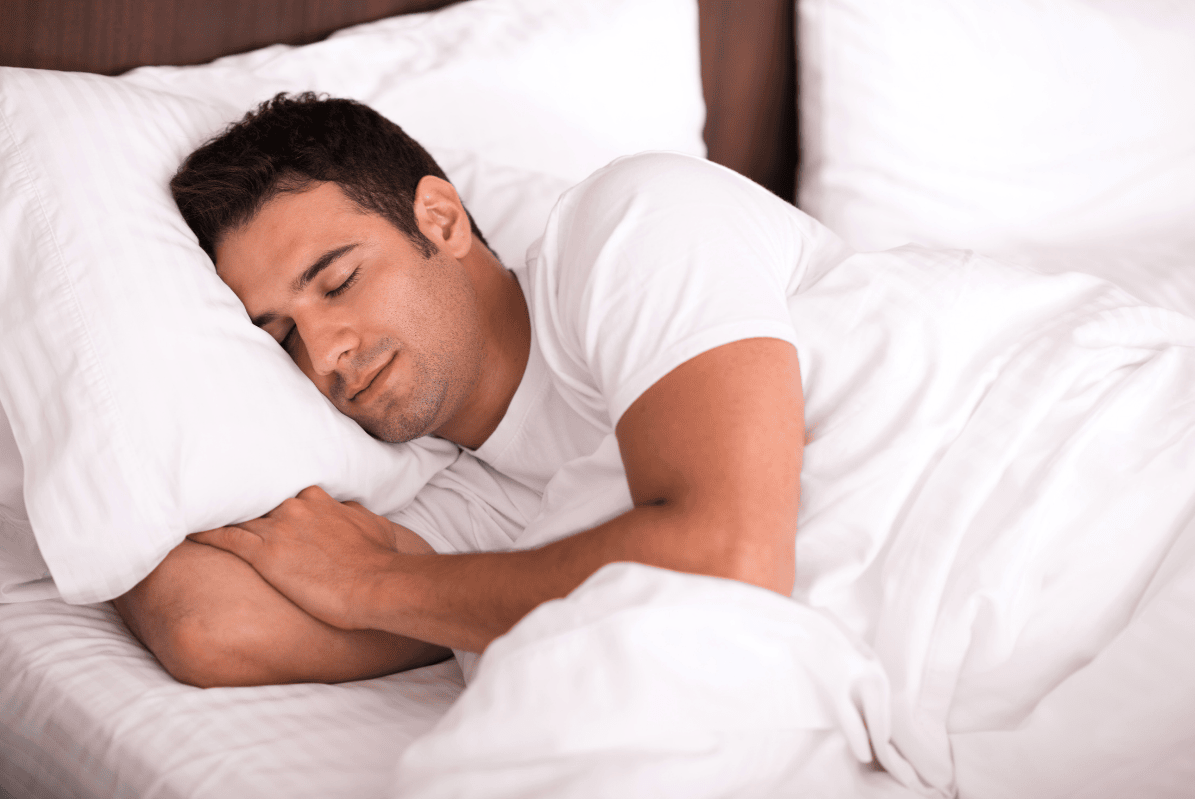Everyone has trouble sleeping now and then. This can have a considerable impact on how your immune system functions. Read on for 20 tried and tested ways to ensure you get a good night’s rest.
Magnesium – Is the main mineral necessary to sedate the brain for sleep. A powdered form will work much better than a tablet and is also best taken halfway between dinner and bed. Most people will need to take a morning dose also in the first few weeks to build up a base level as Magnesium is the most common mineral deficiency in Australians. It will also help out with restless legs and cramps at night. ‘Magopti’ is a great product as it also contains taurine which is another big brain seater.
Ban screens from the bedroom – Artificial blue light from screens affects the body’s internal clock and acts as a stimulant. Switch off the TV and don’t use laptops, smartphones or tablet computers an hour before bed.
Cut out caffeine – Tea and coffee are stimulants that interfere with the process of falling asleep. Six hours after your last cup of coffee, half the caffeine will still be in your system. Remember that cola and energy drinks contain caffeine too.
Don’t drink alcohol – Alcohol makes it easier to fall asleep initially but results in poorer quality sleep. Studies suggest that having a drink before bed will cause you to wake up every 90 minutes or so throughout the night.
Change your mattress – We recommend buying a new mattress every 5 years and your pillow every 18 months for ideal sleeping posture and comfort. You spend one-third of your life in bed – the cost of the bed should reflect this also (you spend less time in your car, so maybe your bed should cost more than your car?)
Workout in the morning – Exercise helps relieve stress and releases feel-good chemicals, but the brain takes 3 hours to sedate after heating from exercise so morning exercise is better.
Set your alarm – Don’t be tempted to sleep in, even if you had a late night. Getting up at the same time each day, and going to bed at the same time each night, helps programme your body to sleep better.
Write down your worries – “Journaling’ – If you’re going through a difficult time or are busy at work, it’s easy to feel overwhelmed. Try writing down your worries or making a list of things you need to do. Once you’ve written the list, put it away. Keep going over things won’t help.
Learn to relax – If thoughts of the day make it hard to drop off, try listening to relaxing music, meditating or doing some gentle yoga before bed.
Don’t lie awake worrying – If you’ve been awake for a while it’s better to get up and do something rather than lie there worrying that you can’t sleep. Go to another room or read a book (nothing work related) until you feel sleepy again.
Switch off – Try relaxing each body part in turn. Lie on your back, then tense and relax your toes, saying ‘goodnight’ to them, then your calves, legs and so on. Once you get to your head, visualise going into your ‘control room’ and flicking off switches to various parts of your body.
Dim the lights – Bright light will wake you up. Dim the lights 30 minutes before bed and don’t switch on the main light (use a low-level night light) if you need to go to the toilet during the night.
Have a cup of herbal tea – Many ‘sleep’ teas are made from the same compounds used in supplements that promote sleep, like valerian or chamomile.
Hide your alarm clock – Knowing that you have to get up in a few hours will make you feel anxious and less able to relax. Don’t watch the minutes go by – hide the alarm clock and you’re more likely to nod off.
Take a bath – Enjoy a long, hot soak in the tub an hour or so before bedtime. The warm water will help to relax you. Add lavender or lilac-scented bath oil to reduce stress and promote relaxation.
Check the temperature – Your bedroom should be comfortably cool, around 18 degrees Celsius. If you feel hot, switch to a lighter quilt or sleep with the window open. If it’s too cold, your body won’t be able to relax as it has to work hard to protect its core temperature.
Block out the noise – If you have problems dropping off but tend to sleep well once you do, try wearing ear plugs. Research shows that unfamiliar sounds during the first and last two hours of sleep can suppress immune system function, even if you don’t wake up.
Quit smoking – Research shows that smokers take longer to fall asleep and have more disrupted sleep once they do.
Try a herbal – Valerian is widely used for insomnia and is most effective if taken over a few weeks.
Eat a banana – Bananas contain tryptophan which stimulates the production of melatonin and serotonin in the brain (sleep hormones). They also contain magnesium.
Dr Barry Smith
B.Sc. (Chiro), B.Chiro(Hons).
I.C.S.S.D.
DOCTOR OF CHIROPRACTIC


